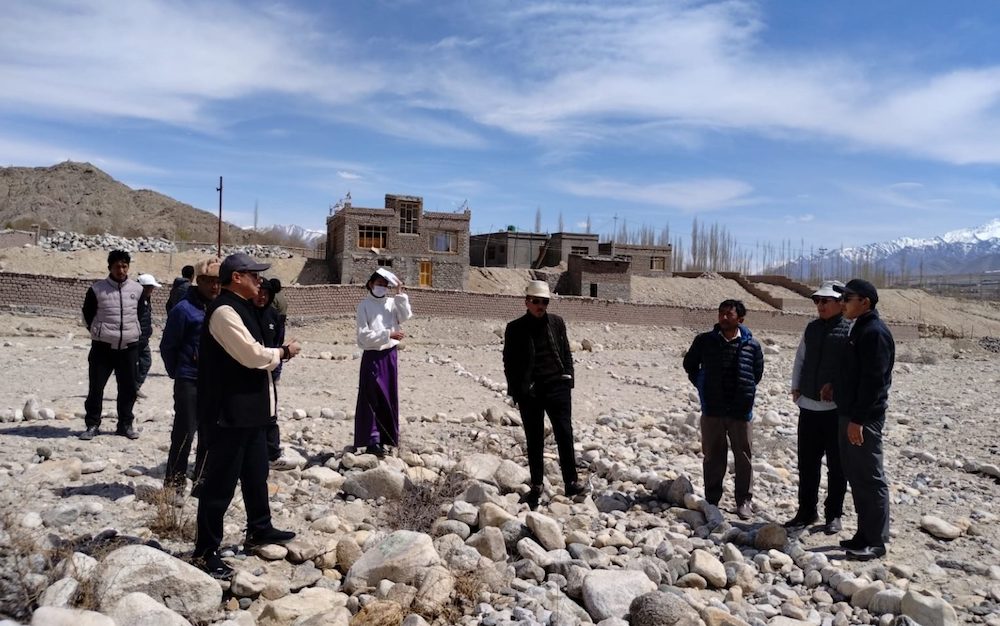By William Brand,
OAKLAND – When traveling the world, some Americans turn their backs on events they might consider outrageous if they happened at home.
It is time to stop looking the other way, Oakland travel author Jeff Greenwald says.
Through a nonprofit he and colleague Kirstin Williams have founded, The Ethical Traveler, Greenwald gets the message out.
And their first recommendation: Don’t go to Nepal this summer. The Nepalese government has violated the rights of Tibetan refugees by handing adults and teenagers back to the Chinese, and the country must learn that is not right, Greenwald says.
Nepal is hardly on most travelers’ itineraries, but the Bay Area has plenty of avid trekkers and mountaineers. This is the 50th anniversary of the first ascent of Mt. Everest — the world’s highest, 29,035-foot mountain on the border of Nepal and Tibet. The first climbers approached the mountain from Nepal, so Nepal is a popular destination this year.
Greenwald, a world traveler who loves Nepal and whose 1990 book about it, “Shopping for Buddhas,” still sells briskly, nevertheless urges travelers to stay away. “On June 5, the government of Nepal handed 18 Tibetan refugees, who had fled across the Himalayas to Nepal, over to the Chinese government. This is in violation of international law.”
The idea behind The Ethical Traveler is to give travelers an organization that will represent them in political and environmental ways. “Travelers can be a powerful force if they’re united,” Greenwald says.
Barbara Banks, director of new trip development at Wilderness Travel in Berkeley and a frequent visitor to Nepal, questioned the boycott.
“We feel the more effective way is to make yourself known to the Nepalese government. Write a letter to the embassy; that will have much more impact than a boycott. Besides, tourism is either the No.1 or No.2 industry in Nepal. A lot of people in Nepal outside the government could be hurt by a boycott,” she said.
On the web: the Tibetan Justice Center Web site is: http://www.tibetjustice.org Nepal’s government site is: http://www.nepalhomepage.com/dir/politics/ The Ethical Traveler is at www.ethicaltraveler.com.
Neither the Nepalese embassy in Washington D.C., nor Richard Blum, the honorary Nepalese Counsel in San Francisco, returned phone inquiries asking for comment. But in Berkeley, Barbara Banks, director of new trip development at Wilderness Travel, and a frequent visitor to Nepal, questioned the boycott.
“We feel the more effective way is to make yourself known to the Nepalese government. Write a letter to the embassy; that will have much more impact than a boycott. Besides, tourism is either the No.1 or No.2 industry in Nepal. A lot of people in Nepal outside the government could be hurt by a boycott,” she said.
Banks added that Wilderness Travel is not unbiased and is concerned about Tibetan refugees. The firm handles many trips to Nepal — from simple visits to the capitol, Kathmandu, to elaborate trips to the Mt. Everest base camp, to the ascent of a bordering 17,000-foot peak with an unparalleled view of Everest.
Nepal is a popular destination for Bay Area residents, both trekkers and those interested in Buddhism and other Eastern religions, she said. “It’s also a great place for people who want to travel back in time,” Banks said. “It’s a fascinating, remote kingdom.”
So far, Tibetan refugee groups have stayed on the sideline. But Minnie Cancellaro, executive director of the Tibet Justice Center in Berkeley, said her group intends to make a decision soon. “We’re still discussing it and we have plenty to say about the situation of Tibetan refugees in Nepal,” she said.
The Tibet Justice Center has about 1,300 members, including many attorneys interested in the rights of Tibetan refugees. “There has long been a gentleman’s agreement that allowed for safe transit of Tibetans escaping brutal conditions in Tibet.
“But over the last couple of years, the agreement has broken down, and that is intolerable,” she said. Tibet and Nepal share a border, the Himalayas, and about 3,000 refugees a year make it out of Tibet that way, Cancellaro said.
“There has been a great deal of turmoil in Nepal,” Cancellaro said, “and the country has been under incredible pressure from the Chinese. The message to Nepal has to be — can you stand up to the Chinese and not forcibly repatriate refugees. We believe that Nepal can do that.”
But the question, Greenwald and Williams argue, is what would an ethical traveler do — faced with the situation in Nepal.









